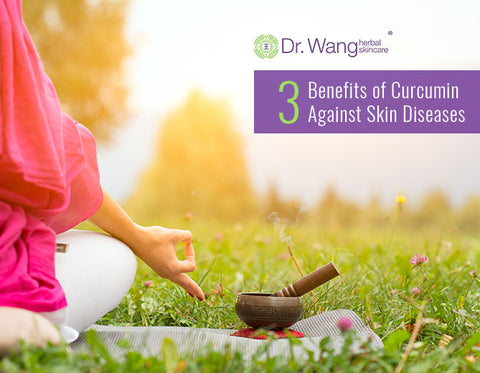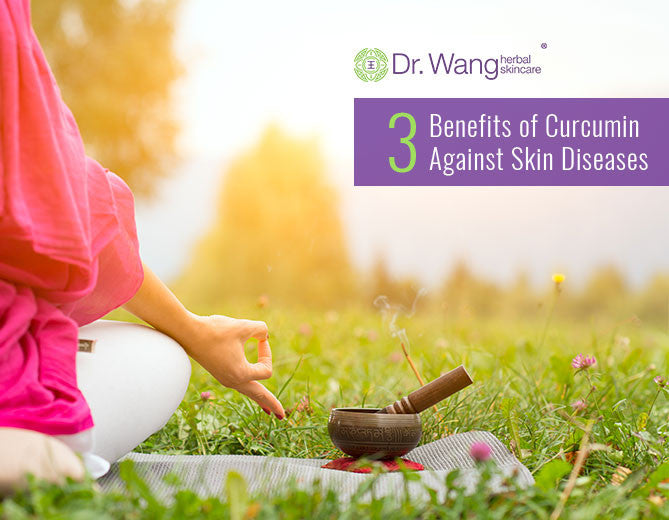
Curcumin is a natural chemical that helps protect our cells from cancer. It is also known to slow down aging, reduce plaque build-up in the arteries, and help combat diabetes, as well as other illnesses. This makes curcumin a popular compound to heal skin problems.
Turmeric has high contents of curcumin, a chemical compound known for anti-inflammatory effects. Turmeric is often mistaken for ginger as it is not unusual to misidentify the two. Ground turmeric, known around the world as curry powder, is a popular component of Ayurvedic medicine. Its high concentration of curcumin gives turmeric a yellow pigment.
Curcumin Heals Cuts and Wounds
Many topical ointments contain curcumin as its main active ingredient. The curcumin reduces inflammation caused by a wound. In Ayurvedice medicine, it is usually used as a cream to treat burns. Its antibacterial properties provide relief and quick wound healing. These properties make curcumin an effective natural anti-bacterial, which help prevent germs from spreading infection from skin to the bloodstream.
Aloe vera and curcumin combined in a lotion or cream can provide soothing comfort for burned skin. In Asia, people suffering from sunburn often used this combination for relief. This combination, mixed with honey, has potential to yield fantastic results in reducing bruising and scarring.
Curcumin Prevents Skin Cancer
There are three common skin cancers: squamous cell cancer, basal cell cancer, and melanoma. Skin cancers are mainly caused by sunburn, excessive UV exposure, and chemicals. Although skin cancers can be easily cured when detected early and treated promptly, it can lead to death.
Curcumin, when applied to the skin, is proven to effectively soothe the skin and neutralize free radicals with antioxidant properties. Free radicals can lead to inflammation and damage to cells’ DNA and other cellular organelles. Curcumin may prevent and curb tumor development through its antioxidant and anti-inflammatory properties.
Curcumin Helps Soothe Psoriasis
Psoriasis is a skin disease that occurs when the skin’s immune system is dysfunctional. Underlying immune cells trigger ongoing inflammation that leads to rapid skin cell turnovers. Psoriasis can appear as white, scaly plaques with underlying red and inflamed skin. This itchy, painful disease occurs on the knees, scalp, elbows, back of the neck, and ears.
Curcumin is usually taken orally to help fight psoriasis. Turmeric can be used in tea, milk, coffee, or cooking ingredient.
Please note that curcumin has low bioavailability. This means that it is not easily absorbed in the body, so you have to take large doses. For best results, take curcumin with black pepper. It has a component called piperine that makes curcumin easier to absorb in the gut.
The full range of how curcumin helps with psoriasis is not completely understood yet. It is believed that the curcumin helps to control and reduce skin inflammation and the severity and frequency of psoriasis flare ups.
Aside from eating or drinking curcumin, it can also be mixed in oil or cream and then apply it to skin. Both forms can be effective in reducing inflammation and scaling associated in psoriasis. Many mix curcumin or turmeric powder with water and then apply to the area with psoriasis. These approaches are seen in traditional Ayrvedice medicine.
It is important to note that more rigorous research and clinical trials are needed to validate the actual efficacy. Please let us know if you have used curcumin. If so, how did you use this natural ingredient? Did you take it by mouth or apply to the skin? Did you find it helpful?



